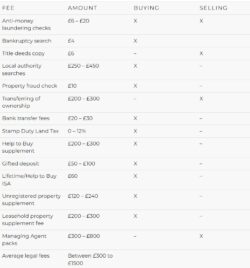There is a knowledge gap in conveyancing, as only half of UK homeowners are aware of what the process is, a property organisation finds.
Despite needing to go through the legal activity to secure their homes, there is a dearth of awareness among buyers and sellers of property, and adults as a whole as to what conveyancing entails.
Just two-fifths of the 2,000 respondents surveyed by HomeOwners Alliance knew what the service was, while almost half (48%) didn’t know conveyancers act on behalf of both buyers and mortgage lenders.
A total of 40% believed that the conveyancer checks the structure of the property to make sure it is in sound condition, which is incorrect.
Out of the property owners who recalled the conveyancing process when buying or selling a home, 72% were satisfied with the service they received. But over a third (38%) think the experience could be quicker and a fifth (21%) wanted a clearer explanation of the legal issues that arose.
What is conveyancing?
Conveyancing involves the transferring of property ownership from one party to another. So, whether you have bought, sold or remortgaged your home, there would have to have been a professional conveyancer involved to carry the service out.
This comprises of many fees which, depending on the conveyancer you use, range for each element. While not legally obliged to do so, hiring a solicitor is recommended – as well as shopping around – to secure the best conveyancing deal.
Some of the most expensive charges included in the service include local authority searches, which typically cost between £250 and £450, according to HomeOwners Alliance figures.
A payment to the Land Registry is also required to transfer the ownership of a property, and that usually amounts to £2-300. Other costs include anti-money laundering (AML) checks, title deeds and property fraud checks.
Below is a table of the fees included in a typical conveyancing check. (Click to expand)
(Source: HomeOwners Alliance)
Ahead of national conveyancing week on 11 March, Rob Hailstone, the initiative’s organiser, hopes to bring to light what the legal process involves for homeowners and those yet to step onto the property ladder.
‘A knowledge gap’ in conveyancing remains
Rob Hailstone said: “With only two out of five adults currently knowing what conveyancing is, there has to be a focus on improving the wider consumer understanding of the homebuying and selling legal process and the role of the conveyancer, and we have to accept that many people going through this are not clear on what is happening, or how long it might take.
“As you might expect, knowledge of conveyancing amongst those who have already bought a home is higher than amongst non-homeowners, yet there does remain a knowledge gap, particularly in terms of who the conveyancer is representing, what services they are providing, and indeed how consumers access the services of specialist conveyancers in the first place.”
Hailstone added: “Overall, we want to educate consumers so they go into this process clear and confident on who to use, the service they are receiving, what they pay for, and to ultimately be satisfied with the end result.”





